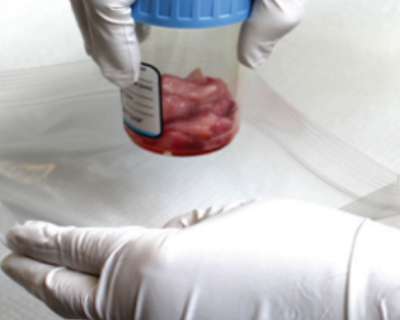Your Neonatal Hospital Protocols
Your Neonatal Hospital Protocols
When a child is born and the mother is a known substance abuser or in scenarios where exposure to drugs or alcohol is suspected, the neonatology staff should have a protocol to determine the substance that child may have been exposed to.
Depending on hospital protocols, the neonatology staff often attempts to collect urine, meconium or umbilical cord. Urine is a difficult to collect sample for practical collection purposed while meconium is inconsistent. Hair and nails, although available as testing options, are recognized as problematic because newborn children often do not have enough hair and their fingernails are not long enough to collect an appropriate sample size for drug screening and confirmation.
URINE | HAIR | NAILS | MECONIUM | UMBILICAL CORD
Traditional on-site hospital labs can process urine samples almost immediately; however, due to some challenges and limitations, collecting urine is often only considered a preliminary first step requiring additional testing with either umbilical tissue or meconium. These challenges include: the collection bag can be difficult to secure, short window for collection time, limited specimen volume available, and window of detection indicates very recent exposure – 72 hours at best, but more typically within the past 24 hours.
Hair and nail collection is difficult because newborns often do not have enough hair and their fingernails are not long enough to collect an appropriate sample size.
Still a popular method, meconium provides greater sensitivity and detection opportunities to more drugs than other matrices and can reveal maternal drug use as far back as the second trimester. However, challenges with meconium include a long multi-day collection period—the heterogenous nature of the testing requires that all stool formed during gestation be collected over several days and then mixed together. Other known disadvantages include:
- Hospital staff often does not send (and, thus, laboratories do not receive) adequate sample sizes to perform proper testing.
- The same person is usually not able to collect the entire sample. This can result in higher labor costs and added time for multiple neonatology staff members to handle a single specimen over several days, contributing to increased risks of cross contamination.
- If a child is administered drugs after birth, they will appear in results.
- If a mother is administered drugs during birth, they will appear in results.
By contrast, umbilical cord testing is very easy to collect and send for testing because every child is born with an umbilical cord. For a superior neonatal drug toxicology testing process and results, partner with NMS Labs for UCT collection, screening, and confirmation testing. Identification of the substances to which the child has been exposed in utero helps your neonatology staff to evaluate the best course of treatment for that child. Do we perform tests using meconium and other specimens? Absolutely, we are a full-service clinical and forensic toxicology testing lab. However, UCT offers the following distinct advantages:
- Faster and easier collection method
- Saves hospital staff time (one time collection vs. days of collection)
- Chances of cross contamination are greatly reduced
- Faster turnaround time
- Longer window of detection than urine
- Similar detection window to meconium—possibly longer for certain substances
For more than 50 years, NMS Labs has worked with clinicians to improve patient outcomes. With this mission in mind, we offer comprehensive umbilical cord testing both drug screening and confirmations to aid neonatologists, hospital lab directors, and staff. Only NMS Labs umbilical cord toxicology testing and confirmations satisfy the top healthcare providers who demand integrity, security, accuracy, efficiency, and confidence as leaders in patient care. As a professional in lab management, clinical services, or neonatology, we know you want to provide your newborn patient screenings in a timely and accurate manner.
Using high performance liquid chromatography and tandem mass spectrometry, our comprehensive umbilical cord tissue drug screening and confirmation panel gives you superior test results for 57 analytes across all major classes of psychoactive drugs. All analytes that screen positive automatically trigger a confirmation and are reported in 72 hours. Negative test turnaround time is just 24 hours!

Specimen Collection Instructions
Six easy steps for umbilical cord sample collection

Umbilical Cord Requisition and Chain of Custody Form
Simple and secure sample submission

Frequently Asked Questions
Frequently Asked Questions on Umbilical Cord Tissue Testing.

Newborn Toxicology Testing Using Umbilical Cord
When You Need to Know™ Trust NMS Labs

Why Healthcare Providers Trust NMS Labs for Umbilical Cord Testing
Serving Medical Professionals Like You for Over 50 Years

Understanding Health Impacts on Families and Children
What is Neonatal Abstinence Syndrome
Arrange a Consultation Form
NMS Labs proudly partners with healthcare providers and Clinical Research Organizations for Umbilical Cord tests. Please complete the information below and a representative will be in contact to discuss the needs of your organization.